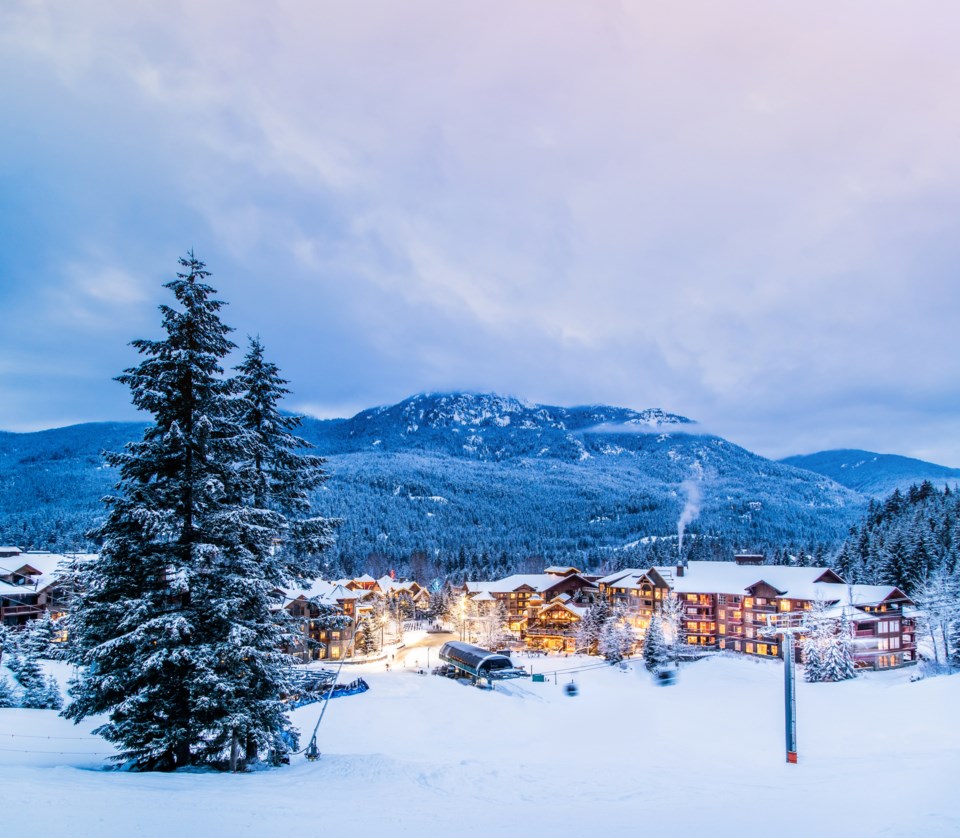(This letter was addressed to B.C. Premier John Horgan, Health Minister Adrian Dix, and Public Health Officer Dr. Bonnie Henry and shared with Pique.)
Based on current public health directives, the sit-down restaurants at the top of Whistler and Blackcomb require a vaccine passport for attendance.
These restaurants may account for 1/20 (likely less) of the seats available for eating while on the mountains. The large cafeterias consist of dense seating arrangements where strangers sit shoulder-to-shoulder, and back- to-back.
More importantly, the current directives do not address individuals sitting in gondolas—a plastic bubble containing up to 10 people, which users share with a new selection of complete strangers from all over the province, the country, and the world, up to 10 times per day. Users are breathing heavily, in a moist environment, where masks are damp and often of little to no effect. This would seem like the perfect setting for spreading COVID-19.
As it stands, Vail Resorts—owner of Whistler Blackcomb—is deferring to the provincial government as to standards to adhere to for COVID-19 prevention. I can only guess that they are fearful of alienating some of their guests by imposing stiffer measures and they would rather the government play the role of enforcer.
Regardless, the provincial government has the authority to impose standards that will be effective in preventing the spread of COVID-19 within the skiing/riding venues and I am imploring you to do this for the sake of our health and economic welfare.
The Delta variant is the most infectious variant we have dealt with thus far and so I am sure you would all be motivated to limit its spread amongst skiers and riders from the Lower Mainland and beyond.
Vancouver Coastal Health has done an admirable job of limiting COVID-19 cases and keeping our hospitals running well. It would be most regrettable if we find ourselves being “ground zero” in Whistler again, filling up emergency wards and ICUs because relatively simple steps were not taken to minimize the potential spread of Delta.
This presumes no new, equally or more infectious variants are introduced in the meantime. The same rationale applies to all ski resorts in B.C.
I am a small business owner and long-time resident of Whistler. Two years in a row we have suffered early shut-downs of Whistler Blackcomb resulting in severe economic impact.
Last year, little was done (until after March vacation break and it was too late) to limit the spread of the Brazilian variant and a huge portion of our local population became infected.
Whistler Blackcomb is a huge economic driver for B.C. and so I would suggest that you would all be keen to prevent a similar occurrence happening again. If our province and the other larger provinces have vaccination rates well above 80 per cent, I cannot see that many potential customers will be turned away by stricter measures.
I would suggest that many more potential customers will be lost for fear of mass spread of COVID-19 while skiing and riding in B.C.
My understanding is that your directives for vaccine passports are intended to apply to voluntary, non-essential activities that present risk of spread. Skiing and riding are certainly non-essential and so the same policy drivers should apply to these activities, where the potential for spread is acute.
Please give serious thought to the simple measures that would be required to make skiing and riding in B.C. so much safer. It will be of great health benefit and economic benefit.
Greg Diamond // Whistler






